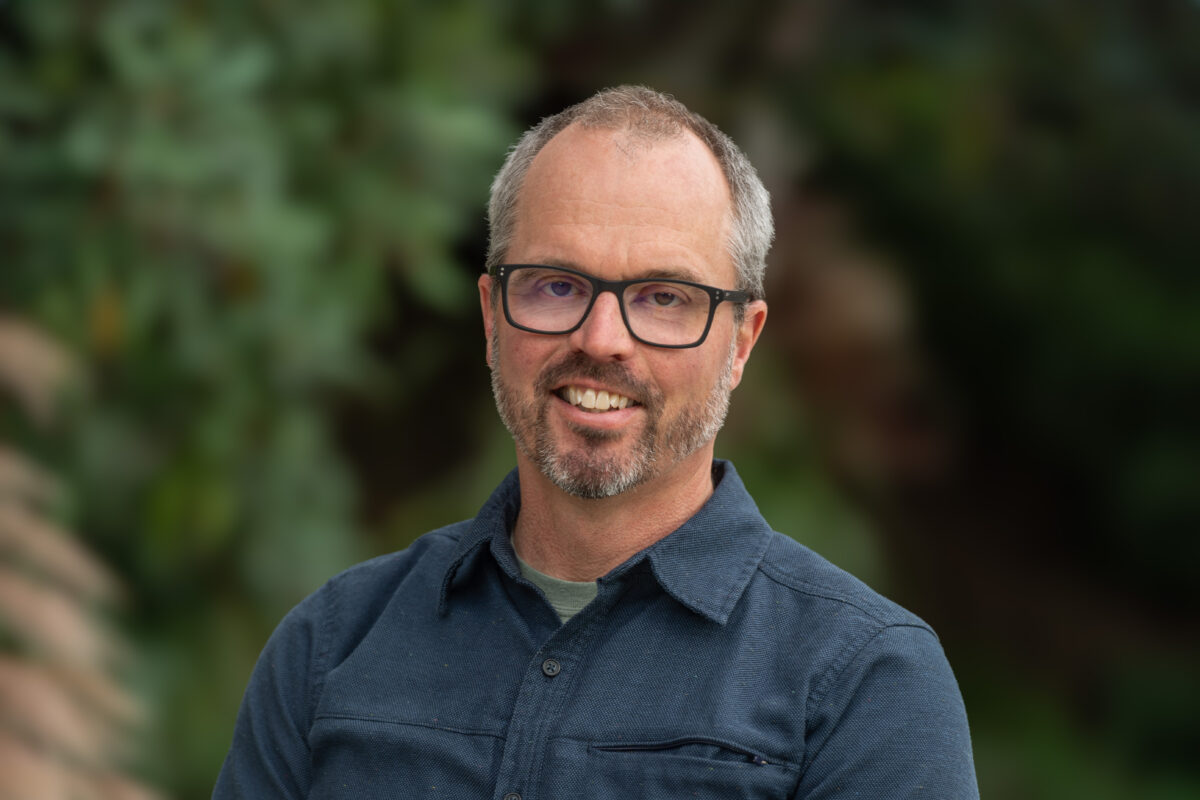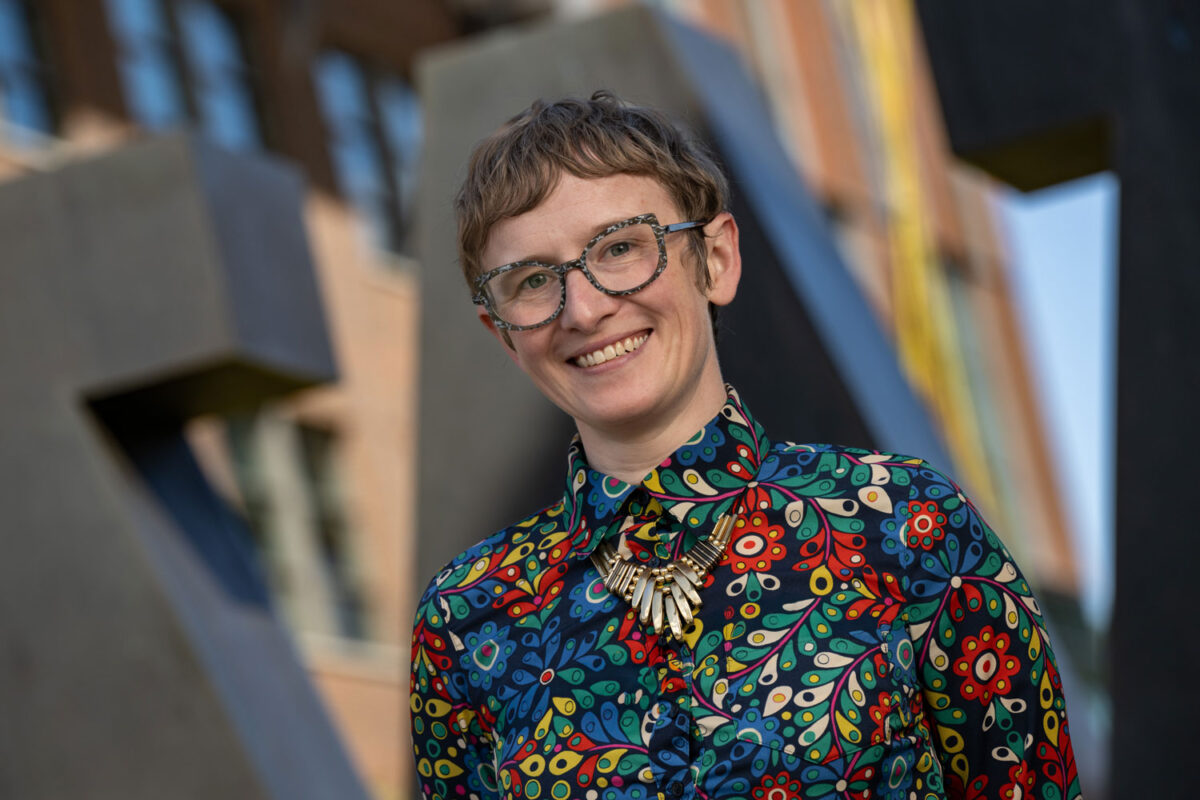When Dr. Guy Hamilton went to college, he said there was never any discussion about the career options available to him post-graduation.
“Professors could only tell you how they got their job,” he said. “If you wanted to be a professor, the steps were clear — go to grad school and get a doctorate, then do postdoctoral work after that.”
He was also privileged, he added, in that his parents financially supported him through college and never questioned his job prospects when he said he wanted to study biology for more than a decade.
It wasn’t until after he’d graduated — completing a bachelor’s in Microbiology from Indiana University Bloomington and a doctorate in Molecular Biology from the University of Oregon — that he began to wonder about the other career opportunities available and how students can be connected with those options at an earlier point in their education.
This question led him to the administrative side of education where he continued to explore how to bring academia and industry together for workforce development on college campuses.
Now, as the University of Washington Bothell’s first director for the Center for Biotechnology Innovation & Training, launched in fall 2022, he’s asking the same question about how to connect UW Bothell students to careers in biotechnology.
A career-focused approach
Making it to the end of his education without having applied for a job, Hamilton realized the need for greater awareness about job opportunities while doing postdoctoral research at Fred Hutch. “There was kind of a groundswell at that time of postdocs, and there were far more of us than there was a need for professors,” Hamilton said.
Hamilton and his peers, noticing the odds, founded the Student Postdoc Advisory Committee to bring professionals in their area of study in to discuss how they’d used their degrees in different careers.
“I think that became a motivating factor as I think about education,” he said, noting that his experience in a more traditional education setting had focused on learning and research for research’s sake rather than to fill a career or industry need.
As he began teaching at Shoreline Community College’s Biotechnology Program, he continued to see a shift in education as real-world applications became a greater focus. After teaching for 12 years, Hamilton transitioned into an administrative role as the executive dean of Workforce & STEM.
“I was supervising all work force training programs at the college and getting to work with diverse sets of faculty and industry partners to think about the way we develop training programs that served our students in the sense that they were aligned with job outcomes,” Hamilton said.
“It’s a win-win obviously in that students get into high-tech careers and our community partners get a workforce pipeline,” he said, adding that there’s a growing need for professionals in the biotech industry.
Meeting a regional demand
Dr. Leslie Cornick, dean of UW Bothell’s School of STEM, emphasized the need for more skills and job training in biotech at the CBIT launch event.
“The higher education sector in Washington state has not been able to keep pace with this growth, leading to a significant shortage of industry-ready employees to support these companies,” she said. “The potential for these industries to relocate if we cannot provide the trained life sciences graduates they need is a significant risk to the economic health and vitality of the region.”
Earlier this year, while still at Shoreline, Hamilton worked on a grant-funded project to do a national labor market analysis for the cell and immunotherapy technician workforce. The project found that Washington ranked No. 3 in the nation for the number of job openings posted from December 2021 to November 2022. Of the 756 jobs posted in that period, 76% required only a bachelor’s degree.
“These are jobs that our graduates could be applying to, but there’s not enough awareness about those careers — or the skills and training they require,” he said. “So how can we think about our training programs to make sure that our students are getting degrees and skills that are applicable to jobs that are in that area?”
The biotech industry, like medicine, has a history of flourishing in areas with a large academic presence, such as Boston and San Francisco, because working with universities is essential to its success. Unlike in medicine, where everyone knows what a doctor is and how to become one, the varied career opportunities in biotech are lesser known, Hamilton said.
Building academic pathways
As the center’s inaugural director, Hamilton is looking forward to playing a key role in the future of CBiT and partnering with local industry.
“I was excited by the opportunity to grow the workforce development side and build academic pathways here at UW Bothell,” he said. “I found it very motivating the way the University is helping students — some of whom never envisioned themselves in these high-tech jobs — and is raising awareness and connecting them to these careers.
“That’s what really excited me to take this position and to be on the ground floor: We’re starting from scratch, and that’s the fun part of it.”
As he works alongside other UW Bothell faculty and staff to build the center from the ground up, Hamilton says there are three priorities he’s looking to address first.
The initial phase involves connecting with industry and taking inventory of the current curriculum to better understand what skills and credentials are needed. The future curriculum will also look to incorporate credentials apart from an overall degree, such as badges and certifications that can be leveraged on resumes and on LinkedIn profiles as proof of qualifications in specific areas.
The second stage will be to build an advisory committee and a core group of industry representatives to support CBIT in a number of ways, from directly working with faculty on curriculum to connecting with the state legislature and supporting grant applications.
The third priority, Hamilton said, is finding a dedicated physical space on or near campus. This space would allow the center to work directly with companies to provide research opportunities for students. A physical space, he added, would also help raise awareness of CBIT and its mission.
I was excited by the opportunity to grow the workforce development side and build academic pathways here at UW Bothell. I found it very motivating the way the University is helping students — some of whom never envisioned themselves in these high-tech jobs — and is raising awareness and connecting them to these careers.
Guy Hamilton, CBIT director
A vision for the future
“Success to me means we have not only a recruitment center and the career awareness piece but also a place where there can be a dynamic exchange between students, faculty and companies,” Hamilton said. “Together, we’ll be able to provide genuine research experiences that are going to allow students to enter this career and be a productive part of the industry.”
Hamilton officially began his role as director on Sept. 5, 2023, and now is working to incorporate his three top priorities and other goals into a three-to-five-year strategic plan.
“UW Bothell is so lucky to have Dr. Hamilton as the director for the center,” Cornick said. “He brings years of experience and a wealth of knowledge in the biotech sector — both in research and education — and is already plugged in to the biotech community all over the North Puget Sound.
“He has gotten off to a great start already, and I’m excited to see where he leads the center as the opportunities for students and faculty are boundless!”




